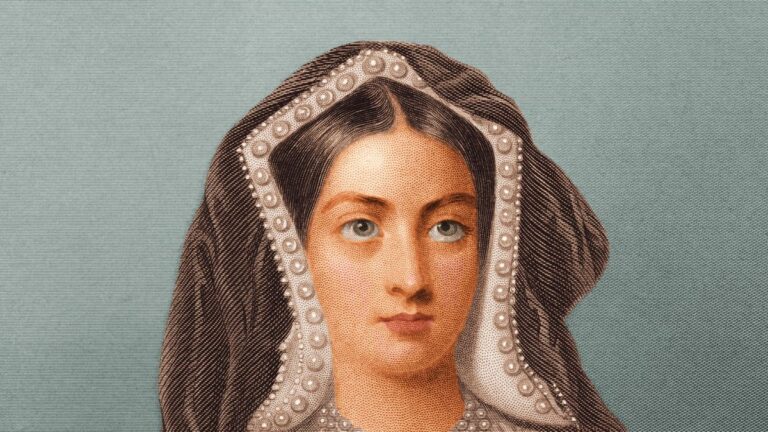Catherine of Aragon, the daughter of Queen Isabella I of Castile and King Ferdinand II of Aragon, become born on December sixteen, 1485. She became one of the maximum splendid figures of the Tudor period, ordinarily referred to as the first spouse of King Henry VIII of England. Catherine’s lifestyles turned into marked by political intrigue, spiritual turmoil, and private tragedy, but she emerged as a symbol of resilience and fortitude at some stage in tumultuous instances. This article delves into the lifestyles and legacy of Catherine of Aragon, exploring her early years, her marriage to Henry VIII, her role in English politics, her unwavering commitment to her concepts, and her enduring affect on history.
Early Years and Education of Catherine of Aragon
Catherine of Aragon lifestyles embodies the triumph of the human spirit in the face of adversity. Catherine’s upbringing changed into deeply rooted inside the royal courts of Spain. From a young age, she received a comprehensive education befitting her royal fame, studying subjects which includes records, literature, languages, and theology. Her mother and father, Isabella and Ferdinand, had been staunch proponents of Catholicism and performed pivotal roles in the Spanish Reconquista and the establishment of the Spanish Inquisition. Catherine imbibed their devout religion and unwavering dedication to the Catholic Church, values that could form her destiny selections and actions.
Marriage to Henry VIII
In 1501, Catherine married Arthur, Prince of Wales, the eldest son of King Henry VII of England. However, their union turned into quick-lived, as Arthur tragically died simply months after their marriage. Despite this setback, Catherine’s destiny in England remained uncertain till Henry VII’s death in 1509, which paved the way for her marriage to his 2d son, the newly topped King Henry VIII. Their marriage, to start with celebrated with amazing pomp and rite, might end up one of the maximum tumultuous and consequential in English history.
Political Influence and Diplomacy
As queen consort, Catherine performed an energetic function in English politics, particularly in subjects of international relations and international members of the family. Fluent in numerous languages, which includes Spanish, Latin, French, and English, she served as a valuable middleman among Henry VIII and overseas monarchs. Catherine’s diplomatic efforts aimed to steady alliances, negotiate treaties, and promote England’s pastimes on the European level. Her political acumen and diplomatic abilties earned her the honour and admiration of her contemporaries, improving her have an impact on in the English court.
Religious Convictions and the Great Matter
Catherine’s steadfast adherence to her Catholic faith have become a defining thing of her reign as queen consort. When Henry VIII sought to annul their marriage a good way to marry Anne Boleyn and secure a male inheritor, Catherine refused to consent, bringing up her belief in the sanctity of marriage and her conviction that her union with Henry became legitimate in the eyes of God. The ensuing criminal and theological dispute, called the “Great Matter,” plunged England into a constitutional disaster and led to the ruin with Rome, ensuing within the English Reformation and the established order of the Church of England.
Trial and Tribulations
Despite Catherine’s unwavering stance, her marriage to Henry VIII was in the long run annulled by way of Archbishop Thomas Cranmer in 1533, and she or he turned into stripped of her title as queen consort. Forced to stay in relative obscurity, Catherine persisted years of trouble and isolation, separated from her liked daughter, Princess Mary, and denied the recognition and assist owed to her as Henry’s former wife. Yet, even within the face of adversity, Catherine remained dignified and resolute, retaining her dignity and composure till her death in 1536.
Legacy and Impact
Catherine of Aragon’s legacy extends a ways past her function as Henry VIII’s discarded queen consort. She is remembered as a girl of precept, braveness, and resilience, who stood organization in protection of her ideals and convictions, even at excellent personal price. Catherine’s unwavering dedication to her religion and her refusal to capitulate inside the face of political pressure inspired generations of girls to claim their rights and assert their autonomy. Her impact on English records and the Protestant Reformation can not be overstated, as her defiance of Henry VIII laid the foundation for the non secular and political upheavals that would shape the course of European records for hundreds of years to return.
Conclusion
From her upbringing inside the royal courts of Spain to her tumultuous marriage to Henry VIII and her subsequent trial and tribulations, Catherine’s adventure is a testament to her resilience, fortitude, and unwavering commitment to her ideas. Despite the demanding situations she confronted, Catherine remained steadfast in her religion and convictions, leaving an indelible mark on records as a symbol of courage, dignity, and style. Her legacy endures as a supply of inspiration and empowerment for generations to come back, reminding us of the power of resilience inside the face of adversity.
